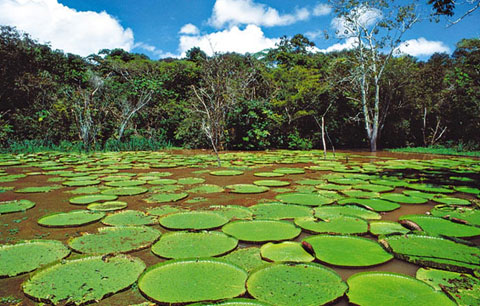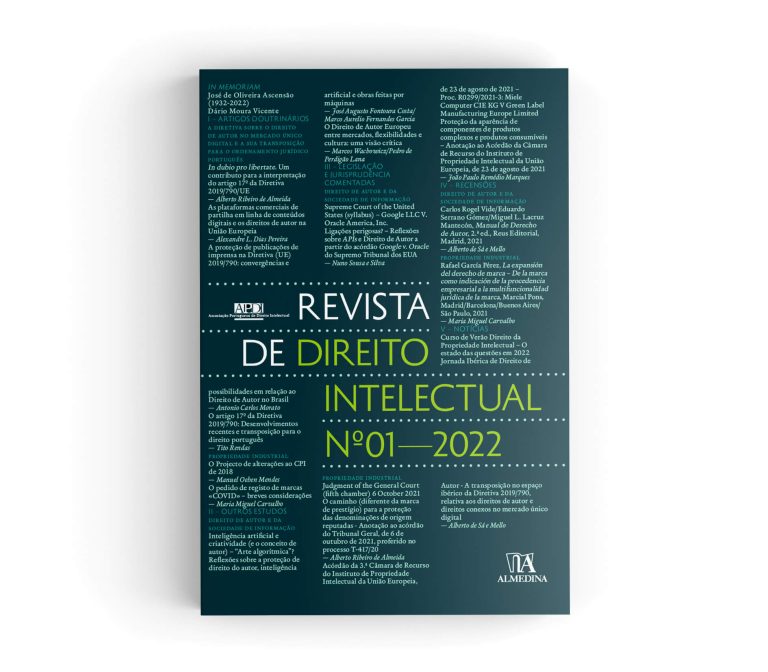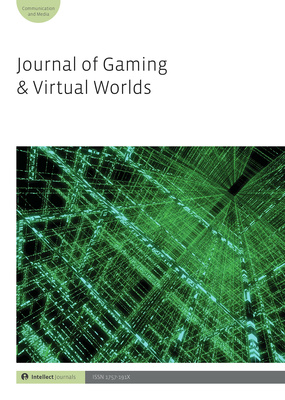
Access and exploration of the brazilian biodiversity: Yes, we have banana!!!
I won’t make here analysis concerning the constitutionality, juridicity and legality regarding the subject of the project, although it would please me. But, in due time, an analysis about the merit of the access to genetic heritage, the traditional knowledge associated, the economic exploration of resulting finished products and the distribution of the benefits, tax issues and from transference and licensing of technology will be performed in specific studies. I won’t make here analysis concerning the constitutionality, juridicity and legality regarding the subject of the project, although it would please me. But, in due time, an analysis about the merit of the access to genetic heritage, the traditional knowledge associated, the economic exploration of resulting finished products and the distribution of the benefits, tax issues and from transference and licensing of technology will be performed in specific studies.
By Charlene de Ávila
I won’t make here analysis concerning the constitutionality, juridicity and legality regarding the subject of the project, although it would please me. But, in due time, an analysis about the merit of the access to genetic heritage, the traditional knowledge associated, the economic exploration of resulting finished products and the distribution of the benefits, tax issues and from transference and licensing of technology will be performed in specific studies.
Access and exploration of the brazilian biodiversity: Yes, we have banana[1]!!!
By Charlene de Ávila[2]
I won’t make here analysis concerning the constitutionality, juridicity and legality regarding the subject of the project, although it would please me. But, in due time, an analysis about the merit of the access to genetic heritage, the traditional knowledge associated, the economic exploration of resulting finished products and the distribution of the benefits, tax issues and from transference and licensing of technology will be performed in specific studies.
The Brazilian biodiversity is an unparalleled wealth, yet to be explored in a responsible and sustainable manner by all the sectors that foster innovations and mechanisms that generate intellectual property.
It would be funny if it weren’t tragic the image that Brazil represents abroad: “even though it owns the biggest biodiversity of the planet, it is a potential market and not a wealth creator.”
Probably our legislators finally woke up from their splendid cradles, with the purpose of aggregate and generate value to our well-known “rich biodiversity” through a legal mechanism denominated “Legal framework of biodiversity”.
The mentioned PL 7735 of 2014 contains 51 articles structured in 9 chapters.
One of the biggest advances brought by the PL was facilitate and promote the scientific research relative to genetic heritage (not the human) and traditional knowledge associated, establishing, in different moments and specific situations, the need for register, authorization or notification.
Specifically, the PL in its chapter V, refers to the benefits distribution aiming to solve a significant portion of the difficulties created by the obstacles and gaps of the actual legislation that prevent its real realization.
The benefits distribution will occur when there is the economic exploration of reproductive material or finished product, laid down in the Classification of benefits distribution list, whose component of the genetic heritage or the traditional knowledge associated is one of the main elements of value aggregation.
As follows, the focus becomes only the final link in the supply chain, where there is more value aggregation, thus not restraining the commercialization, and therefore the split of the benefits from the products (considering that the resulting finished product or reproductive material from distinctive accesses will have the calculation of the benefits split based only on one access).
Controversies arise around the exemption of distribution to many important agents to our economy, such as small enterprises and family farmers, now denominated traditional. However, those agents generate other benefits to society, which hardly would be effected without that exception.
It is also important to notice that is crucial to foster policies focused on the development of the small and medium national enterprises – after all it is where a good portion of the innovations come from.
Furthermore, the exemption is applied to economic exploration involving an operation that use any form of intellectual property right (licensing, transfer) about the finished product, process or reproductive material that comes from the access to the genetic heritage or the traditional knowledge associated with a third party, aiming to stimulate the generation of technologic skills that, mostly, are carried by researchers in the universities.
In the rural activities, the project reaffirm that it will be split benefits only over the commercialization of reproductive material existent in the last link of the supply chain, being exempted of the benefits distribution the species introduced in the national territory by human action, even if domesticated, except the ones that form spontaneous populations and the traditional variety “crioula”[3].
Under the procedure of the Project, the Agreement of benefits distribution is able to reduce greatly the deal costs, since it will be demanded only in the economic exploration stage of the finished product or the reproductive material[4], being exempted the other links[5].
The eventual charge of rights falls only in reproductive material, not over commodity, which means the seed may be charged but not the grain (highly arguable, specially under the laws of intellectual property and cultivars).
The Brazilian farmer and agriculture, who were impaired by a series of events and acts performed (illegally) by big multinational corporations[6], benefit from the measures adopted in this PL (a project of law). The highlights are the revocation of the MPV 2.186-16/2001 that used to criminalize the bioprospecting, rendering impossible the agricultural research and of others areas in general, and consequently blocking the distribution of economic benefits.
Thereby, the PL being approved, the benefits distribution of exotic domesticated species will be exempted, as well as the economic activities destined to food production, fibers, energy, inputs and other products, by-products and agricultural, fishing and forest derivatives, except the spontaneous populations, the local traditional varieties or “crioula”, local adapted breed or “crioula”.
Thus, not ignoring the existence gaps that could lead to judicial reviews, the PL approve can beneficiate several vital and national productive sectors, allowing through its regulation:
→elimination of previous procedures in preliminary phase of access to biodiversity, reducing the uncertainty of the business viability;
→reduction of several factors – bureaucracy, deal costs, etc;
→incentives to bioprospecting;
→no taxation of research;
→support and traceability of products;
→foster to technology transfer through project of benefits distribution;
→support to human resources qualification in themes related to conservation and sustainable use of the genetic heritage or the traditional knowledge associated, with the possibility of supplying products in programs of social interest;
→foster to agricultural efficiency, with the possibility of generating resources to germplasm banks;
→possibility of financing projects related to conservation, sustainable use of biodiversity or protection and maintenance of knowledge, innovation or family agricultural practice, preferably in the local of occurrence of the species in in situ condition or obtaining the sample when the local of origin cannot be specified;
→benefits distribution system;
Finally, the biodiversity is wealth to be explored in a responsible manner and with regulatory isonomy. It is expected that the approved PL will be established in practice through solid policies that aim the socio-economics and technologic interests of the nation. The law project still awaits the sanction of the president Dilma Rouseff.
[1]Only the plantain, according to http://www.planetaeducacao.com.br/portal/artigo.asp?artigo=1001. All the other species would be exogenous and –if not considered domesticated exotics- accountable to the payment of royalties due to distribution with Asian people.
[2] Legal Advisor in matter of intellectual property and agriculture of the office from Denis Borges Barbosa – Rio de Janeiro. Email: [email protected]
[3] Set out in international agreements about access and distribution of benefits in which Brazil is endorser, except that envisaged in the International Treaty about plant genetics resources for food and agriculture – Decree 6.476/2008.
3 The PL introduces two modalities of benefits distribution. The cash one with the establishment of a 1% portion of the annual net income obtained with the economic exploration of the finished product or the reproductive material native of the access to genetic heritage. It can be reduced to 0,1% by agreement celebrated by the Union. In the case of traditional knowledge associated that can be identified, the benefit to be received will be negotiated in a fair and equal manner by the parties.
4 The resulting benefits distribution of the economic exploration of the native product of the access to genetic heritage or the traditional knowledge associated to rural activities will be applied to the last link of the supply chain of reproductive material, being exempted the other links. The intermediaries products won`t be considered for benefits distribution, only the final ones, i.e., there will be the exemption of the distribution of the other links of the production chain.
5 For more information please see: ÁVILA, Charlene. Thoughts about the charge of royalties of RR1 soybean and other emblematic cases in intellectual property. ABPI magazine, 134, jan/feb of 2005; ÀVILA, Charlene. About the expectation of tights from Monsanto in Brazil over the patents requests of the “technology” Intacta RR2 PRO: Where is in fact the innovation? ABPI magazine, 135, mar/april 2015.







